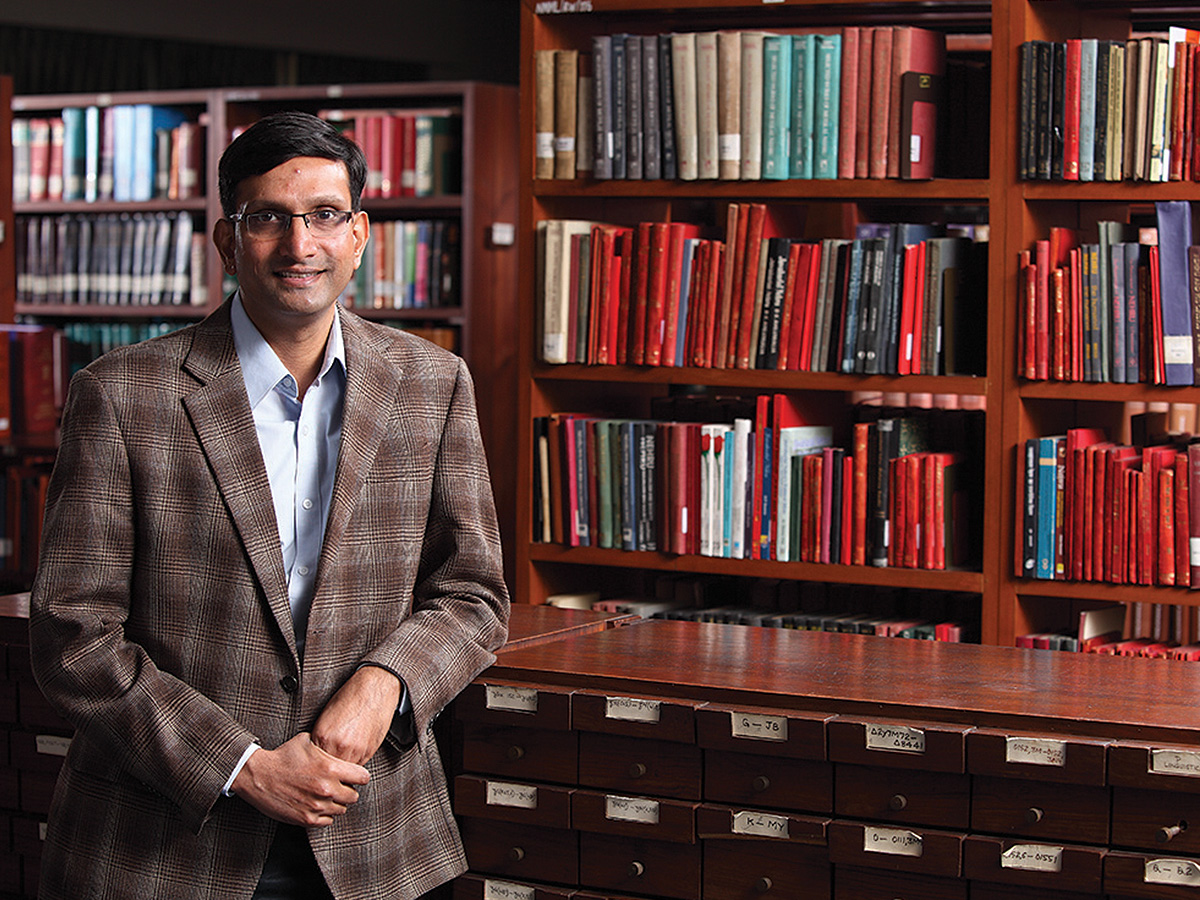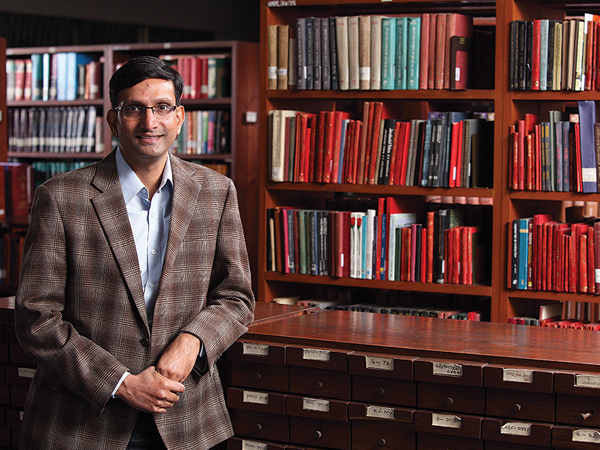The Infosys Prize 2015 in Social Sciences – International Relations and Strategic Studies is awarded to Dr. Srinath Raghavan for outstanding research that synthesizes military history, international politics, and strategic analysis into powerful and imaginative perspectives on India in global context.
Infographic:
Analyzing Strategies for the Home and the World
Scope and Impact of Work
Dr. Raghavan’s three books have established him as the most significant Indian exponent of military history and strategic studies.
His work is marked by conceptual and historiographical sophistication combined with rigorous and original archival work. His research offers new interpretative arguments – based on empirical material and nuanced readings – on important issues: the relationship between India’s domestic policy and the international system, the balance between civilian authority and military power, force and diplomacy in Indian policy, and India’s relations with its neighbors. Raghavan’s history of the 1971 India-Pakistan War judiciously examines its unfolding in the context of global engagements, and reveals the political choices of regional leaders in new light.
Drawing on the tools of the social sciences and of policy studies, Raghavan also uses his own military experience to impart a practical understanding to his scholarly work. From these elements, he builds a remarkable ‘total’ analysis that synthesizes international and strategic perspectives with regional and domestic context, thereby opening new directions of research in Indian scholarship.
By his commitment to teaching, policy engagement, and public commentary, Raghavan’s research is in turn informing debate and helping to deepen India’s strategic thinking at a critical period in the country’s history.
Bio
Dr. Srinath Raghavan is Senior Fellow at the Centre for Policy Research, New Delhi. A B.Sc. in Physics from Madras University and a Ph.D. in War Studies from King’s College London, Raghavan’s research spans international relations, history, and strategic studies. Prior to his academic career, Raghavan spent six years as an infantry officer in the Indian Army.
His publications include War and Peace in Modern India: A Strategic History of the Nehru Years (2010), 1971: A Global History of the Creation of Bangladesh (2013), and India’s War: The Making of Modern South Asia, 1939-1945 (2016), as well as several co-edited volumes. Awarded the K. Subrahmanyam Prize for outstanding contribution to Strategic Studies in 2011 as well as several international research grants, including the MacArthur Foundation’s Asian Security Initiative at Centre for Policy Research, Raghavan is a regular commentator on international and strategic affairs.
Timeline
Jury Citation
Dr. Raghavan’s early research focused on India’s foreign policy during the Nehru years, analyzing Nehru’s use of diplomacy and coercive power. Raghavan examined a series of crises – including refugee influx from Pakistan, and border disputes with China – bringing rigor and nuance to the historical study of India’s international relations, a trait that marks all his subsequent work. His second book, on the 1971 India-Pakistan war and the creation of Bangladesh, used archival sources across the world, and international political economy, to locate the 1971 crisis in a context of global strategic, diplomatic and economic causalities. In his third book, on India in the Second World War, all Raghavan’s skills are visible, in a tour de force of historical social science analysis. Raghavan has also played a significant role in energizing the study of international relations in India, in mentoring younger scholars, and in contributing to national policy debate and formation.
"Using creativity, Srinath Raghavan has woven different strands of thought and method to shed light on India’s military history and statecraft, thereby paving the way for better strategic thinking, as India takes its seat as a newly-emergent global force. It is uncommon in the social sciences to get a major award at such a young age. Congratulations".




